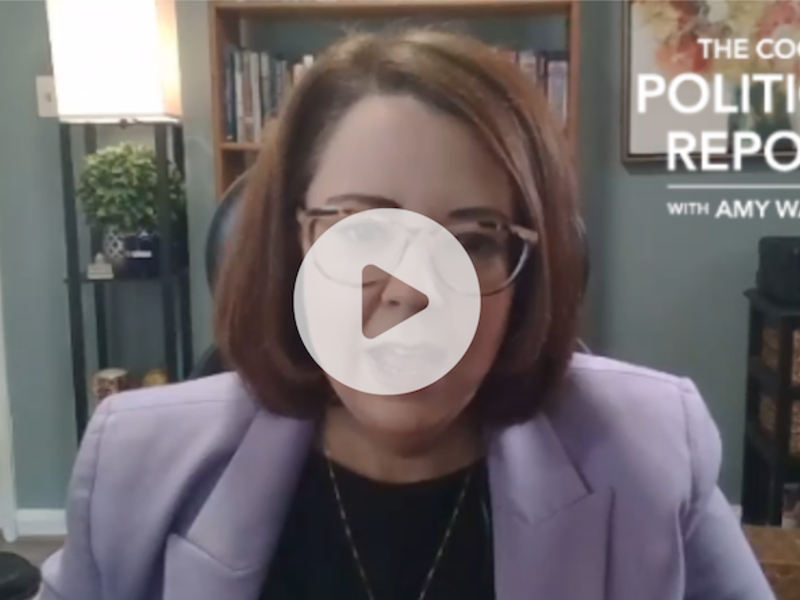
It has been interesting watching and listening to the fallout from President Biden’s comment last week that the bipartisan infrastructure deal he had seemed to embrace would have to be part of a package deal with a reconciliation package, the latter being the bill that had so many elements that are high on Democrat’s wish lists. “If this is the only thing that comes to me, I’m not signing it,” Biden said. “It’s in tandem.”
The Wall Street Journal’s editorial board responded that Biden had “double-crossed” the Republican senators who made up half of the group that reached the deal, “pulling a bait and switch.” Comments from some Republicans were less printable. Congressional progressives, on the other hand, gave Biden’s comment a hardy huzzah, like he was channeling what they so badly wanted.
Some said Biden had committed a gaffe, though it probably doesn’t meet the Michael Kinsley test—that a gaffe is “when a politician tells the truth.”
My interpretation is that it wasn’t so much that Biden was telling the truth when he should not have, but rather that his remark reflected one side of a vigorous debate taking place behind closed doors in the White House and in meetings with Democrats on Capitol Hill. What he said was what so many liberals and more-partisan Democrats want him to do, but probably not what he should have said nor what will ultimately happen. Indeed, the White House almost immediately began walking back the remark, eventually issuing an official statement to that effect.
So what are we to make of this kerfuffle and its electoral implications? For all the Sturm und Drang on talk shows and social media, it will probably make little difference in where things are in three months, let alone in the pivotal midterm election 498 days from now.
The reality is that Democratic voters are so locked into the support/approval column, it is hard to imagine this making much difference. Conversely, Republicans are cemented into opposition and disapproval.
In last week’s Fox News poll, 93 percent of Democrats approved of the job Biden was doing (61 percent strongly). Just 7 percent disapproved. Meanwhile, 78 percent of Republicans disapproved of his performance (61 percent strongly), against 21 percent who approved. The Gallup Organization’s polling for just over the first half of June isn’t much different. Ninety-five percent of Democrats approved of Biden’s performance (just 4 percent disapproved), while 89 percent of Republicans disapproved (11 percent approved).
Obviously, parties have to worry about intensity and enthusiasm to ensure a strong turnout, particularly in midterm elections when voter-participation rates are lower. After record-high turnouts in 2018 and 2020, it will be interesting to see which side will suffer the greater decline: Trump loathers or Trump lovers.
But to a large extent, in a situation in which the Senate could literally not be any closer (and the House not much closer), this will be as competitive a midterm election as any of us can ever expect to see. The key will be how independents break.
Historically speaking, we know that midterm elections generally go badly for the party in the White House. It is also true that voters who are angry or dissatisfied tend to be more politically motivated than those who are satisfied. Sadly, in politics, hate is a much stronger emotion than love, and fear stronger than hope. “Send them a message” resonates far better than “attaboy” or “stay the course.”
The outcome of this election is more likely going to be determined by the mood of independents. Speaking of long-term trends, independents tend to be unhappy with whoever is in charge.
So where are these independents now? In the Fox News survey, 55 percent of independents approved of Biden’s job performance, and 43 percent disapproved. More specifically, 15 percent strongly approved, 41 percent somewhat approved, 17 percent somewhat disapproved, and 26 percent strongly disapproved. The Gallup approval rating among independents was an identical 55 percent, the disapproval a point lower at 42 percent.
But all of this has to be balanced with the understanding that independents tend not to like or trust politics, politicians, or political parties. They tend not to care much about politics or follow it closely. They tend not to read, listen to, or watch news as much as partisans. People watching a game are more likely to be more engaged if they are for or against a team or player than if they’re neutral.
It is interesting that the politician who once called himself a “gaffe machine” has probably committed fewer than he has in many years. He has not been as accident-prone as the guy who ran for president in 1988 and 2008, the guy who spent 36 years in the Senate. Republicans would like to see him step on another rhetorical rake or two over the next few months.
This article was originally published by the National Journal on June 29, 2021.










Subscribe Today
Our subscribers have first access to individual race pages for each House, Senate and Governors race, which will include race ratings (each race is rated on a seven-point scale) and a narrative analysis pertaining to that race.